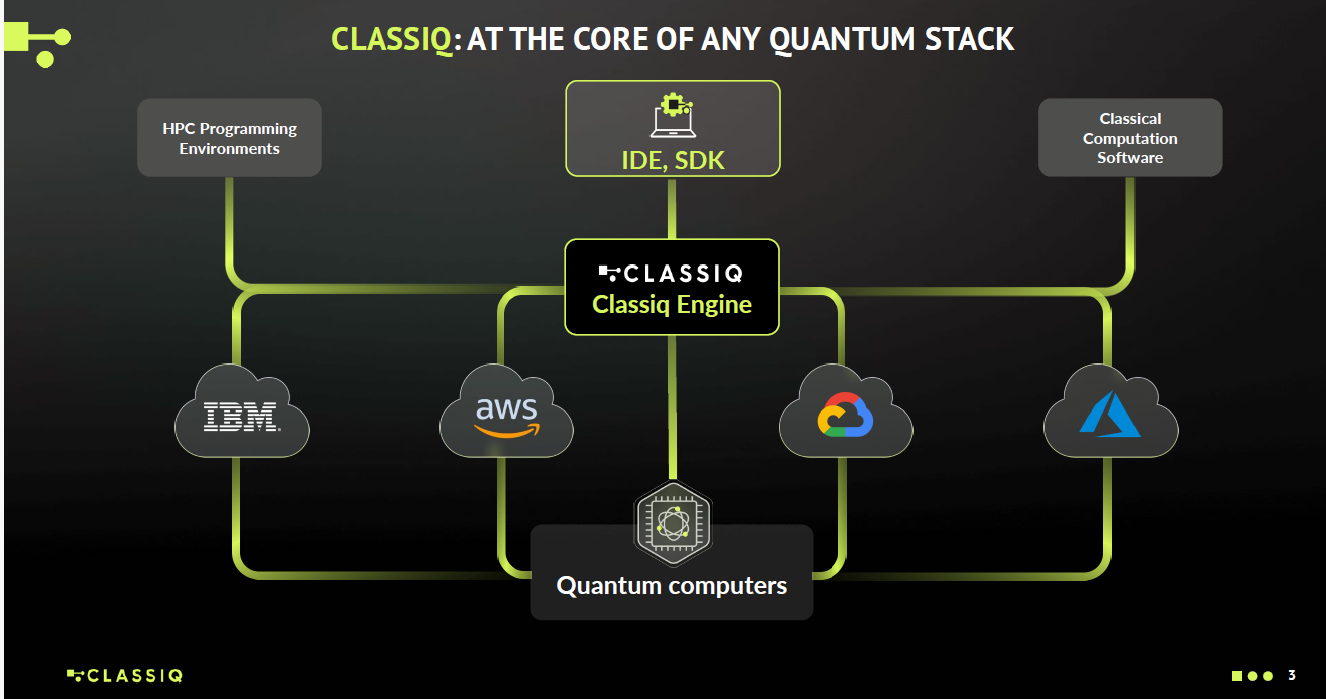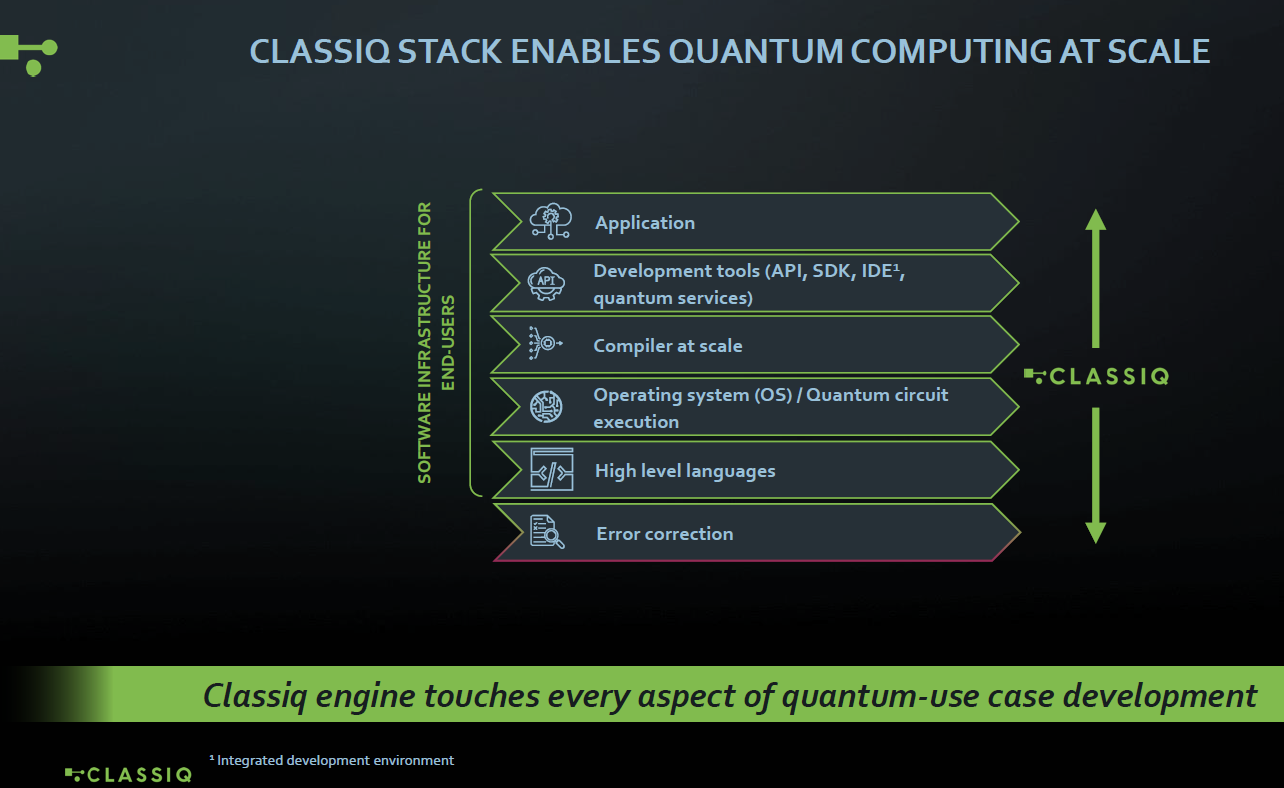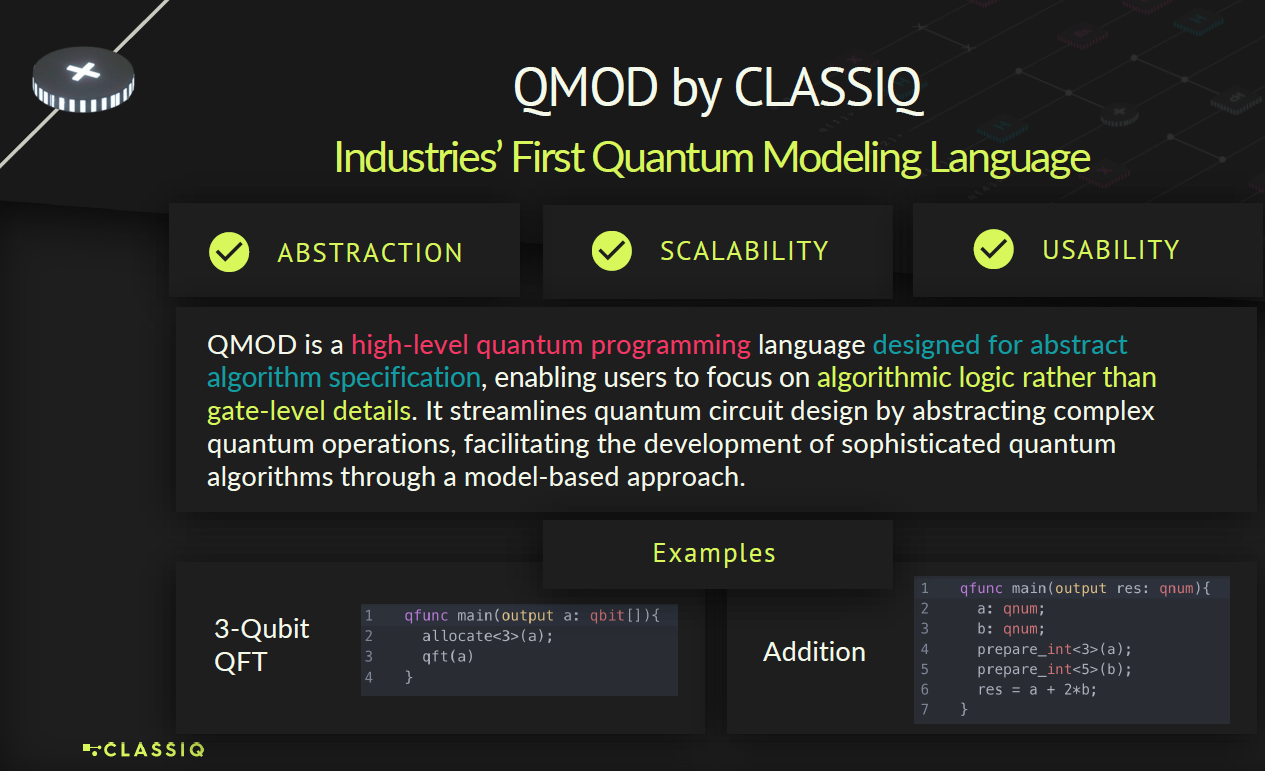Quantum computing software provider Classiq has been busy forging partnerships with everyone from Nvidia to BMW to Citi as it aims to expand enterprise use cases with a software layer that abstracts the underlying hardware.
A few recent developments from Classiq include:
- Partnerships with BMW and Nvidia.
- A partnership with HPE to develop hybrid quantum simulations.
- A customer win with Citi that includes Amazon Braket.
We caught up with Classiq CEO Nir Minerbi to talk about quantum computing and where it's headed.
Classiq's role and state of quantum computing. Minerbi said the goal of Classiq is to build out the software layer for quantum computing. "We developed the operating system and compiler for any quantum computer," he said. "We established this company four years ago because no one could really program on quantum computers. We knew software is essential to developing this new field."
He added that Classiq's role is to work across multiple quantum computing providers since there are many players and approaches. Minerbi said:
"The quantum computing revolution has turned from a question of when to one of relatively soon. In order to realize the potential, we need software. Many good companies are focused on developing hardware and it's too early to bet on a winner. We see amazing progress in the industry."

An agnostic approach. Minerbi said Classiq's approach is to be able to integrate with multiple quantum platforms. "We want to be focused on what you want to achieve on the application or algorithm," he said. "Our complier is taking a high-level functional model that optimizes for the specific machine and the software stack automates the rest of the processes." In other words, Classiq is focused on use cases and abstraction layers instead of hampering developers with details about the quantum circuit, error correction and other hardware issues.
Constellation ShortLists™
Supercomputing and quantum computing. Minerbi said most quantum algorithms are hybrid with some parts for quantum computing and other parts classical. "Today it's definitely a hybrid workflow," said Minerbi. "We see many HPC providers trying to embed quantum computers within the HPC stack. We'll see more HPC centers buying quantum computers and integrating them. From the software perspective, this hybrid approach is something we're very much involved in."

Minerbi noted that HPE is a close partner as is Nvidia, which has its CUDA platform for quantum computing. "Quantum and supercomputing will be integrated so software integration will be very important," he said.
Nvidia's role in quantum. Minerbi said Nvidia is a key partner since many of the quantum simulations were running on GPUs. "These simulations are essential for development of quantum applications and algorithms," said Minerbi. "It's a natural partnership between Classiq and Nvidia."
Minerbi said QPUs, GPUs and CPUs will all be a part of the data center mix and work together.
Meeting developers where they are. Minerbi said Classiq is looking to enable developers to create quantum applications without being experts in quantum computing. "The level of abstraction is tight. You don't need to specify gate level operations and can use Python," he said.

Enterprise use cases. Classiq recently announced partnership with BMW, which established a quantum team a few years ago. Minerbi said BMW understood that to truly leverage quantum you have to create a team to develop applications, algorithms and the IT to be proficient before that hardware is ready. BMW is optimizing cooling systems with quantum algorithms and other use cases. A Classiq partnership with Citibank is different since the bank is just establishing its quantum efforts. Minerbi aid those two examples represent the extremes in quantum, but Classiq aims to be the software stack that appeals to all levels.
The roadmap ahead. Minerbi said Classiq's roadmap for the past few years has been to "take the best practices and technologies from the classical stack and bring them to quantum."
"We eventually want the quantum stack to be almost the equivalent in abstract development and high-performance results," said Minerbi. "All of the pillars are already in the platform, but there's so much work to be done. You'll be able to model a quantum program in a visual way with blocks with python embedded and more integrations. We need to progress the hardware to extract more value with less quantum resources."


